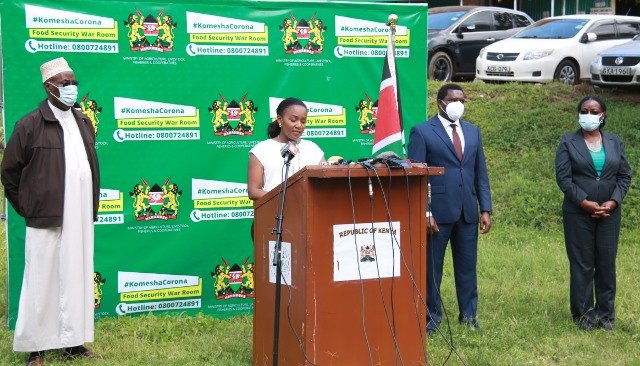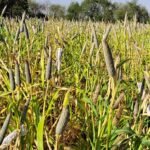By Verenardo Meeme, Rootooba, 15 May 2020
The Kenyan government will get rid of 124,625 (50-kilo) bags of maize unfit for human and animal consumption. The maize was contaminated by aflatoxins, a naturally occurring toxin produced by the fungus Aspergillus flavus that affects maize and peanuts.
‘‘Having received the required license from the National Environmental Management Authority (NEMA) on Tuesday last week, the maize (destined for destruction) is already being transported out of the reserves.’’ Says Anne.
But the Ministry of agriculture’s revised guidelines on post-harvest management hope to reverse the persistent loss through information and education on technologies and post-harvest management.
According to Anne Nyaga, Chief Administrative Secretary (CAS) in the Ministry of Agriculture, Livestock, Fisheries and Cooperatives, agricultural reforms will ensure that warehouse resources are available and accessible to farmers and the private sector who need storage facilities to help in fighting aflatoxins.
The Agriculture ministry’s national food balance sheet during the COVID-19 pandemic shows sufficiency of food contributed by the government’s investment on staple foods such as cassava, Irish potato, rice, maize, pulses, wheat, bananas, millet, sorghum, milk, meat, fish, local vegetables, and fortified foods.
However, demand for maize continues to persist pushing the Ministry of agriculture to allow importers to conditionally import two million bags of white maize for food and two million bags of yellow maize for animal feed between May 1 and September 30, 2020.
Shutting down of livestock markets due to COVID- 19 spread
‘‘With all confirmed cases of COVID-19 in Wajir County being related to livestock trade, the government announced the closure of all livestock markets along the Kenya/Tanzania and Kenya/Somalia Borders indefinitely’’, Anne says.
‘‘Additionally, livestock markets in counties of Narok, Kwale, Taita Taveta, Dagahaley-Wajir, Kajiado, Shambole-Namanga have been closed indefinitely. Meanwhile, the Ilbisil market is being closely monitored and may soon be shut down if stakeholders continue to disregard compliance measures’’, Nyaga explained.
‘‘So far, adherence to measures is generally weak. Once closed, the markets will have to prove beyond reasonable doubt that they can enforce the protocols and ensure full compliance before reopening. Traders are, however, still able to access livestock for trade from individuals informally,’’ Nyaga said.
Gathering information about the food security situation at the grassroots
According to the Chair of the Council of Governors’ Agriculture committee and Governor of Tharaka Nithi County, Muthomi Njuki, the government has established a COVID-19 food security War Room and food security hotline (0800724891).
The COVID-19 National Food Security War Room was established to facilitate and support the operations of the working groups at the National level complemented by County War Rooms to monitor and collect real-time data on food availability, affordability, and access to water throughout the COVID 19 pandemic.
”The data generated ensures that food demand and supply are mainstreamed in the country.” So far, ‘‘we can ascertain that we have food that can last up to the end of June. Besides, 43 out of 47 counties are involved in the food security war room and we urge the rest to join us’’ he concluded.
Meanwhile, according to The Agriculture Ministry, the government has embarked on a deliberate effort towards supporting smallholder farmers with necessary inputs. For instance, the Fertilizer Association of Kenya, Kenya Seed Company and the Pest Control Products Board have all confirmed that there is sufficient stock of seeds, fertilizers, and pesticides for this planting season Nyaga stated.






